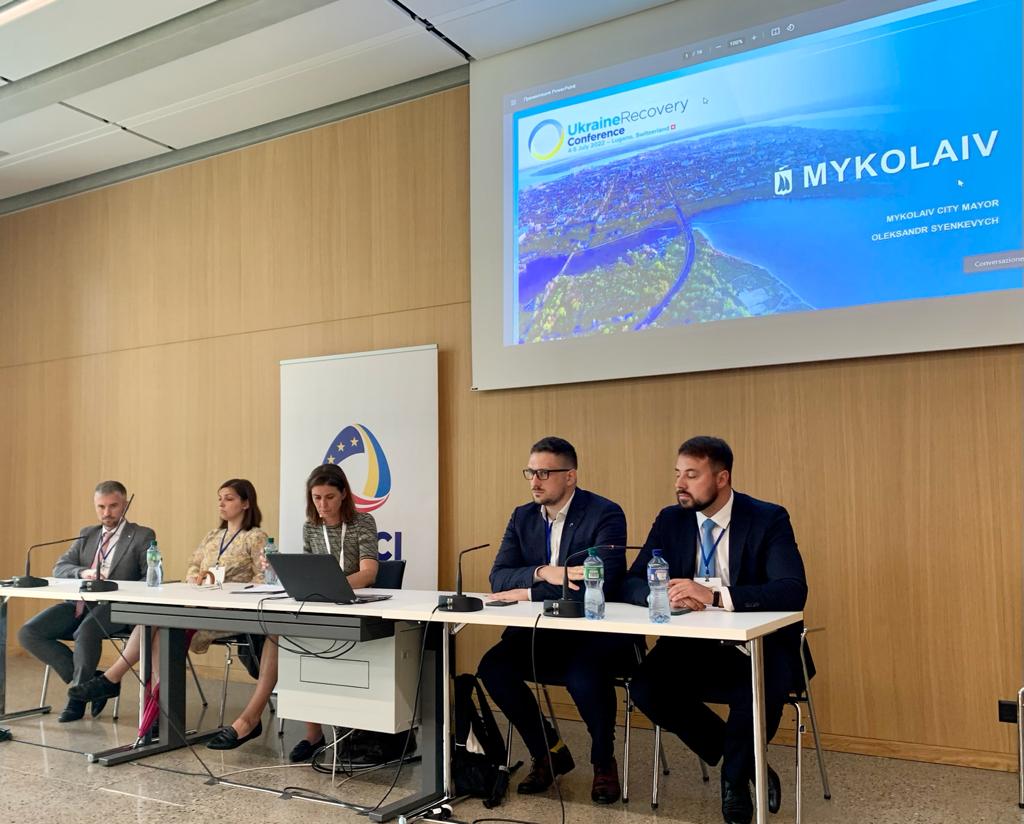

During the conference in Lugano, the government of Ukraine presented a recovery plan worth more than USD 750 billion. It is designed for 10 years and 850 projects. The most expensive of them are the restoration and modernization of housing, regional infrastructure and social infrastructure, expansion, and integration of logistics.
But before proceeding to the restoration (or construction) of a freer, stronger, more democratic and modern state of Ukraine, it is important to approve the principles of this restoration, identify the risks (including corruption ones), and minimize them.
This is what we talked about during the panel discussions in Lugano, stressing that recovery must be based on three pillars.
- Anti-corruption policy.
One of the potential obstacles to candidacy could be corruption. This is not surprising, given the absence of managers in almost all anti-corruption bodies. The Anti-Corruption Bureau, the Specialized Prosecutor’s Office, the Asset Recovery and Management Agency, and the High Anti-Corruption Court do not have permanent heads with all the powers. This problem is only exacerbated with the beginning of reconstruction. The bigger funds for reconstruction, the more people there are, willing to make money on it. Without a strong, capable, independent anti-corruption infrastructure and a working system of inevitability of punishment for corruption, it will be difficult to rebuild effectively. And it will be difficult to raise funds for reconstruction, too. - Transparency and accountability.
We have a successful track record of developing world-renowned electronic systems — Prozorro and Prozorro.Sale — that have raised the bar in international standards for transparency in public procurement and sales. Transparency, of course, is not an end in itself, but it is one of the most important and most effective tools for reducing corruption risks. It’s hard to hide corruption when everyone sees everything. Accountability is the proactive informing and engagement of communities in decision-making in the state. For it is the community that is the main beneficiary of power at any level. That is, citizens pay significant taxes and, in fact, the state/local apparatus are specialists hired by them to implement tasks and meet the needs of society. - Co-creation.
Rebuilding concerns everyone. Therefore, it is necessary to engage Ukrainians as much as possible in the formation of plans and vision for the development of their own community, city, country. This also applies to CSOs, international partners — all numerous groups of stakeholders who can strengthen each other, bringing closer both our military victory and the construction of a renewed Ukraine.
Our citizens can (and even should) participate in the discussion of priorities and fair planning, monitor the implementation of projects and, if necessary, report potential corruption or its risk.
CSOs play a critical role here. First of all, their task is to monitor the observance of the interests of society during the reconstruction. So that the resources are used efficiently and as intended.
The volumes are large, there are plenty of tasks and focus areas. That is why we must join efforts, and the creation of the RISE Ukraine coalition is an important step in this direction.
Ukrainian and international CSOs, initiatives, state institutions and experts have teamed up to help Ukraine recover and become better. RISE Ukraine has formulated the basic principles and approaches by which reconstruction will be conducted: from the rule of law to transparency, accountability, eco-friendliness.
Today, more than 20 CSOs across Ukraine have joined the coalition. At the same time, more than 10 state bodies and international organizations support our principles of reconstruction. Together, we will do everything necessary to make these principles part of reality.






